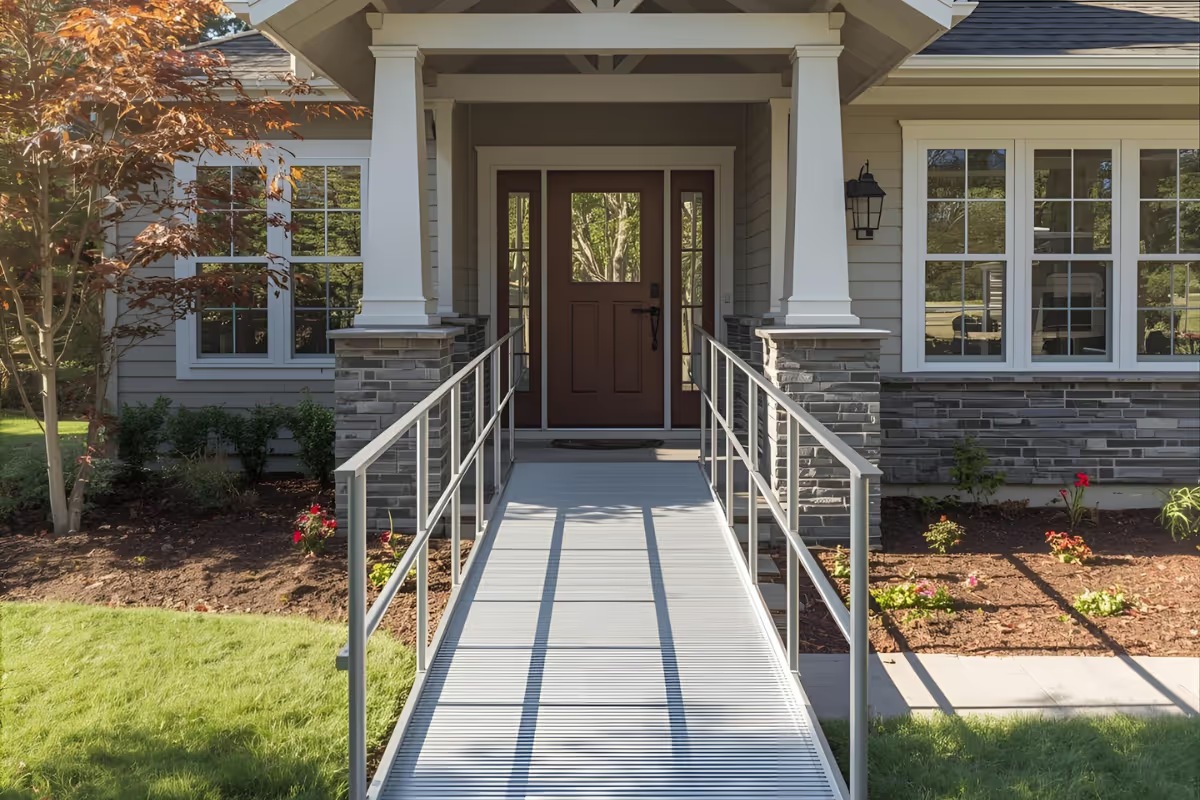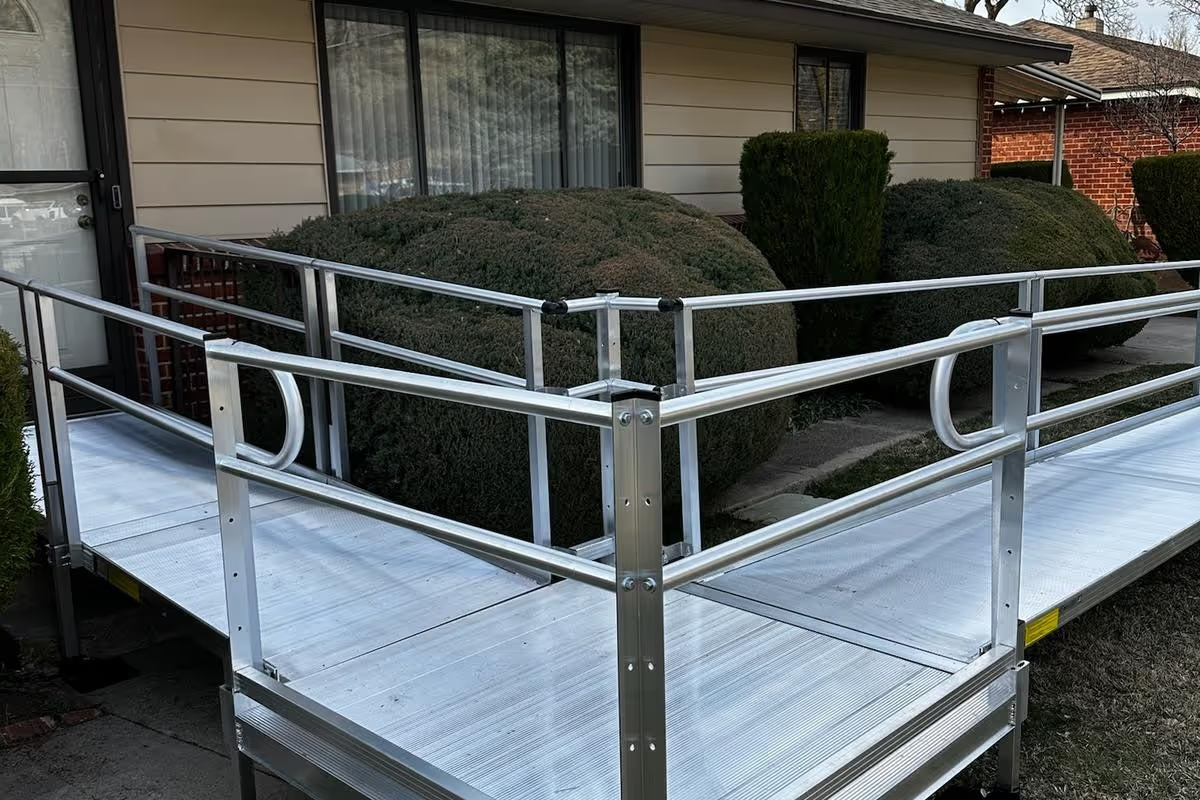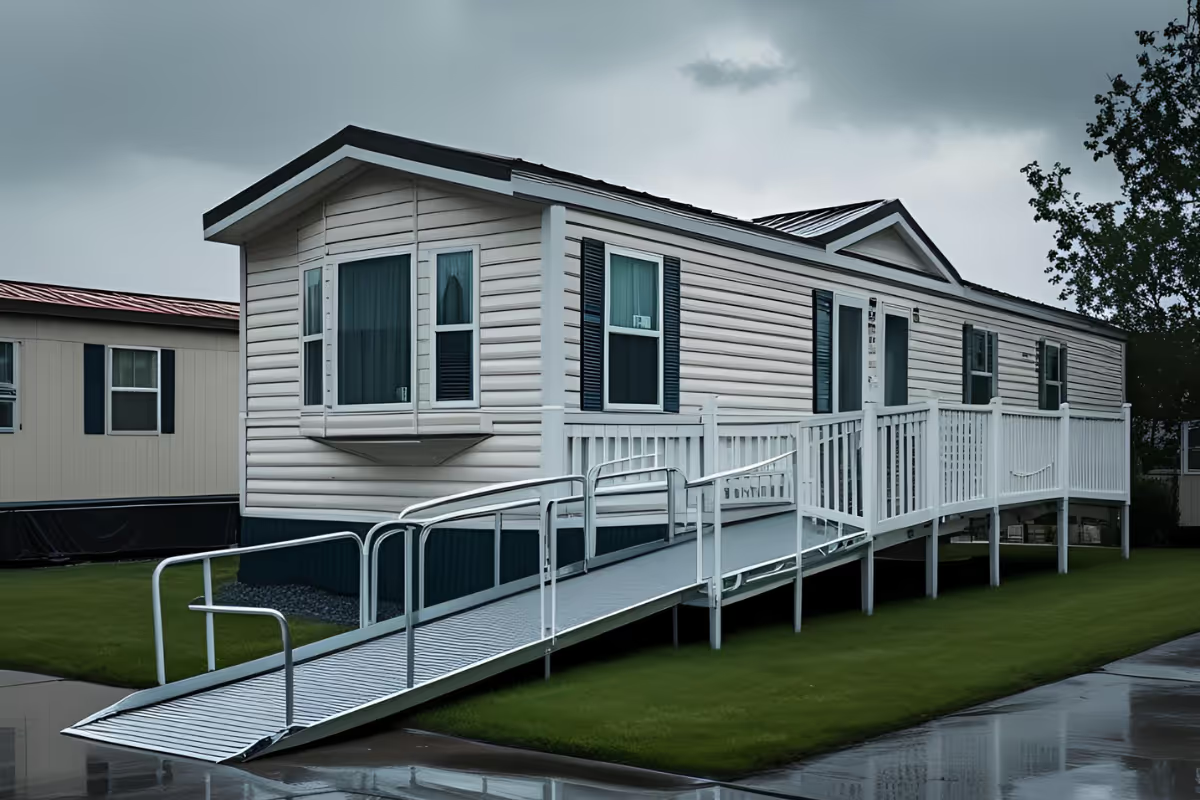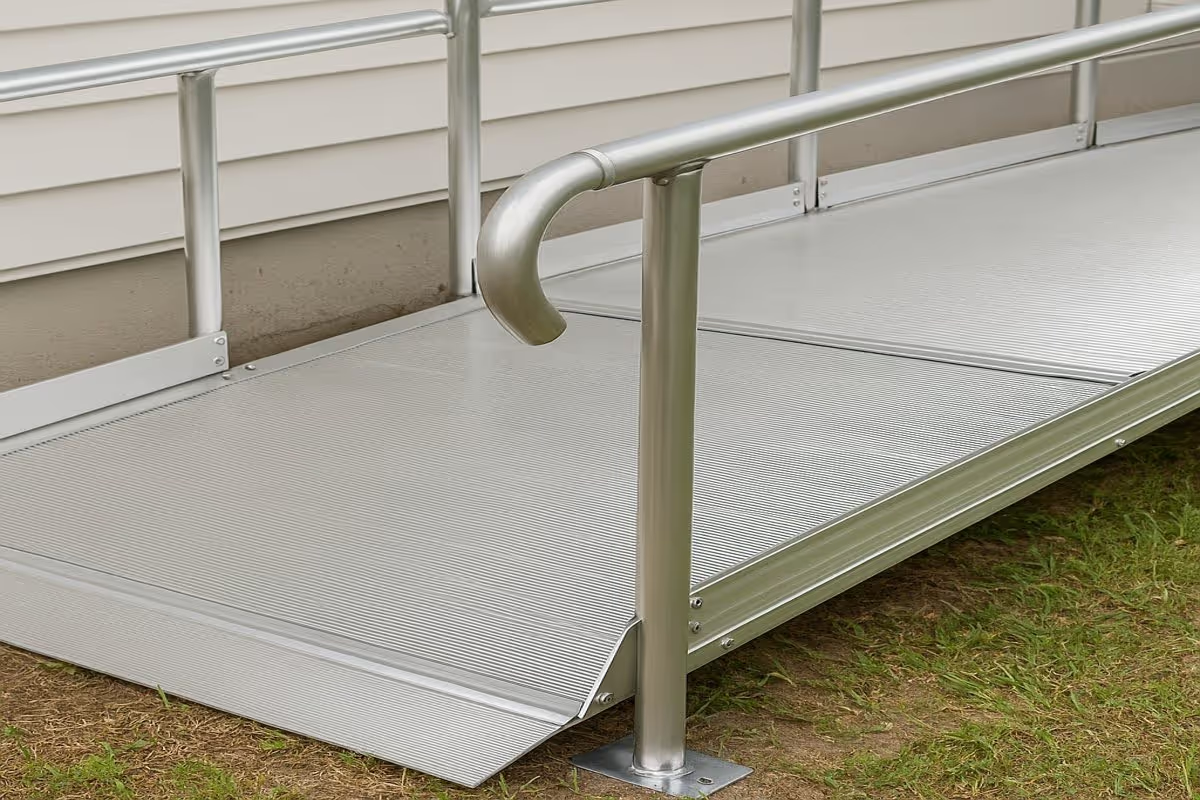Prefab Wheelchair Ramps vs. Custom-Built Models: Which is Right for You?

Wheelchair ramps are essential for creating safe and reliable access to entrances, porches, and raised living spaces. They help prevent falls, improve independence, and make daily life easier for individuals and families living with mobility challenges.
When the time comes to install a ramp, many people wonder whether a prefabricated ramp or a custom-built one is the better choice. Each option has its own strengths, and the best fit depends on your home, your budget, and how long you need it.
What is a Prefabricated Ramp?
A prefab ramp for wheelchairs is manufactured in standard sections and delivered ready to be installed. These ramps are most often made from aluminum or steel and can be assembled quickly on site. Because they are modular, they are adjustable and portable, which makes them a popular choice when speed and flexibility are important.
Pros
- Quick installation: Many prefab ramps can be set up the same day, making them practical when immediate access is needed.
- Affordable pricing: They are mass-produced and require less labor, which usually makes them more budget-friendly than custom options.
- Portability: These mobility products can be reconfigured or even moved to a new home, which is helpful for temporary use or rental properties.
- Durability: Aluminum prefab wheelchair ramps are resistant to rust and weather, so they can withstand outdoor conditions with little maintenance.
Cons:
Prefabricated ramps are not always the right fit for every situation. They may not work well with complex entryways, uneven yards, or staircases that have turns. Design choices are limited, which means they may not blend seamlessly with your home. While they are durable, they may not last as long as permanent structures built from wood or concrete.
Understanding Custom-Built Ramps
A custom-built ramp is created specifically for your home. Every measurement is tailored to your space, including slope, width, and landings. These units can be built from materials such as wood, aluminum, or concrete, and they are designed to fit seamlessly with the property. For families who need a permanent accessibility solution, a custom ramp is often the best choice.
Pros:
- Tailored construction: This type can accommodate curves, turns, and unique landscaping features that a prefab ramp cannot.
- Code and safety compliance: Custom ramps can be built to meet ADA guidelines and local building standards.
- Improved appearance: Homeowners can choose finishes and materials that match the exterior of their home.
- Durability over time: Permanent materials such as treated wood or concrete provide strength and stability for long-term use.
Cons:
Custom-built ramps usually involve a higher cost due to materials, labor, and design work. Installation may require more time and sometimes permits. Since they are permanent structures, they cannot be relocated if you move to another home.
Key Factors to Consider Before You Decide
Choosing the right prefab ramps for wheelchairs is not only about cost but also about how well the equipment will fit into your lifestyle, home design, and long-term plans. Both prefabricated and custom-built ramps offer excellent solutions, but the decision comes down to a few key factors.
Budget and Investment
If you are looking for the most affordable solution, prefab wheelchair ramps typically require less upfront cost. They are mass-produced and installed quickly, which keeps expenses lower. However, if you view the ramp as a long-term investment, a custom-built ramp may be worth the additional cost because it provides a tailored fit, better integration with your home, and greater durability over time.
Layout of the Home
The design of your entryway or yard can quickly determine which option works best. A straightforward set of stairs or a level entry may be a perfect match for a prefabricated ramp. On the other hand, homes with multiple landings, curved staircases, or steep slopes usually benefit from a custom-built design that can address those unique challenges.
Timing and Urgency
If the need for a ramp is urgent, for example, when someone is being discharged from the hospital, a prefabricated, modular ramp is often the most practical choice. They can be delivered and installed in a single day. A custom-built ramp requires planning, design, and possibly permits, which means installation takes longer.
Duration of Use
Consider how long you or your loved one will need the accessibility product. For temporary recovery after surgery or short-term rehabilitation, a prefab ramp is often the right answer. For long-term or permanent accessibility needs, a custom unit provides a solution that can last for years and withstand heavy daily use.
Aesthetic Preferences
Some homeowners want the equipment to blend seamlessly with the look of their property. In that case, a custom-built model offers more flexibility in materials and finishes. Prefab ramps for wheelchairs are more functional in appearance, which may matter less in situations where portability or affordability is the top priority.
Find the Ramp That Fits Your Life
Both prefab wheelchair ramps and custom-built designs serve important roles in creating safe, dependable access. Prefab units are practical, cost-effective, and fast to install, while custom-built options offer a permanent solution that can be tailored to the layout and style of your home.
The right choice depends on your needs, your timeline, and how you plan to use the ramp long term. If you are unsure which option is the best fit, Western Stairlifts can help. Our team provides free evaluations, professional guidance, and expert installation so you can feel confident in your decision.
Call us today and let us help you choose the right ramp that fits your needs.
.svg)
.png)



